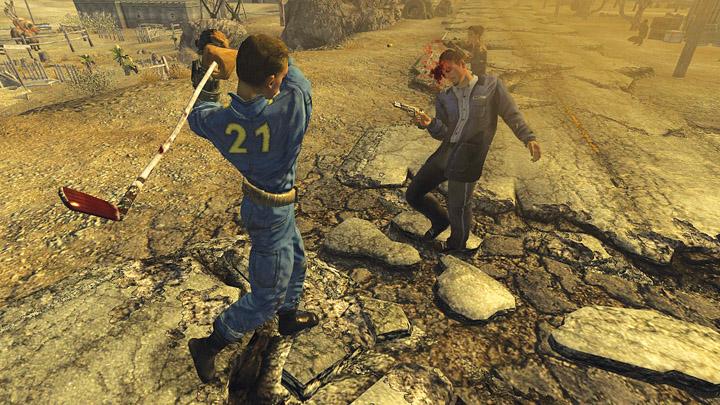ISU professor’s work on media violence commission
Courtesy photo: Obsidian Entertainment
Video game violence has created controversy as to whether it contributes to violence in children and teens.
September 5, 2012
Research into media violence shows that exposure does increase aggressive behavior.
In December 2011, the International Society for Research on Aggression appointed a commission to write a report pertaining to media violence. The man who appointed this commission was Craig Anderson, distinguished professor of psychology and past president of the society.
The 12-person commission included Douglas Gentile, associate professor of psychology.
According to the report, the commission’s purpose is, “The [society’s] Violent Media Effects Commission is charged with the task of producing a public statement on the known effects of exposure to media violence, based on the current state of scientific knowledge.”
The group took a look at media violence research which had already been produced. The commission took into consideration how well the research had been conducted and how legitimate the research was. They also examined the international scene of the issue. Most of the research dealt with television, movie and video game violence.
“We tried to see if there was any scientific consensus among all the different studies; to take a fresh look at it all, you could say,” Gentile said.
With commission members spread out across the country and the world, members from the United States, Australia and Germany all had to work independently with the bulk of the research, which included hundreds of studies on media violence.
All researchers were expected to come into the commission with an open mind and to approach the topic in their own way.
The report, which was presented in May 2012, stated that the commission had decided through the review of hundreds of research studies that media violence does increase the odds of aggressive behavior. The commission also noticed that many of these studies were very much consistent with one other.
“This truly was a consensus document,” Gentile said. “I expected more disagreement among the group during the writing process of the report, but there was very little.”
It was also noticed that as the evidence continues to grow stronger about the effects of media violence, media coverage of the issue has begun to decrease. This problem has led to an uneducated public that has begun to believe in the research less and less due to vocal critics and lessened media coverage.
“Critics tend to assume that media violence research results are about extreme violence, but they are actually about playground violence or bullying — critics just blow it off when it should not be ignored,” Gentile said. “The thing that has been most misunderstood about these media violence studies is that there has been no evidence related to extreme or criminal violence.”
Researchers like Gentile would like to see an improved rating system for media like video games, but it is seen as an unlikely goal. They hope that their report will help educate parents about what their children watch and play.







